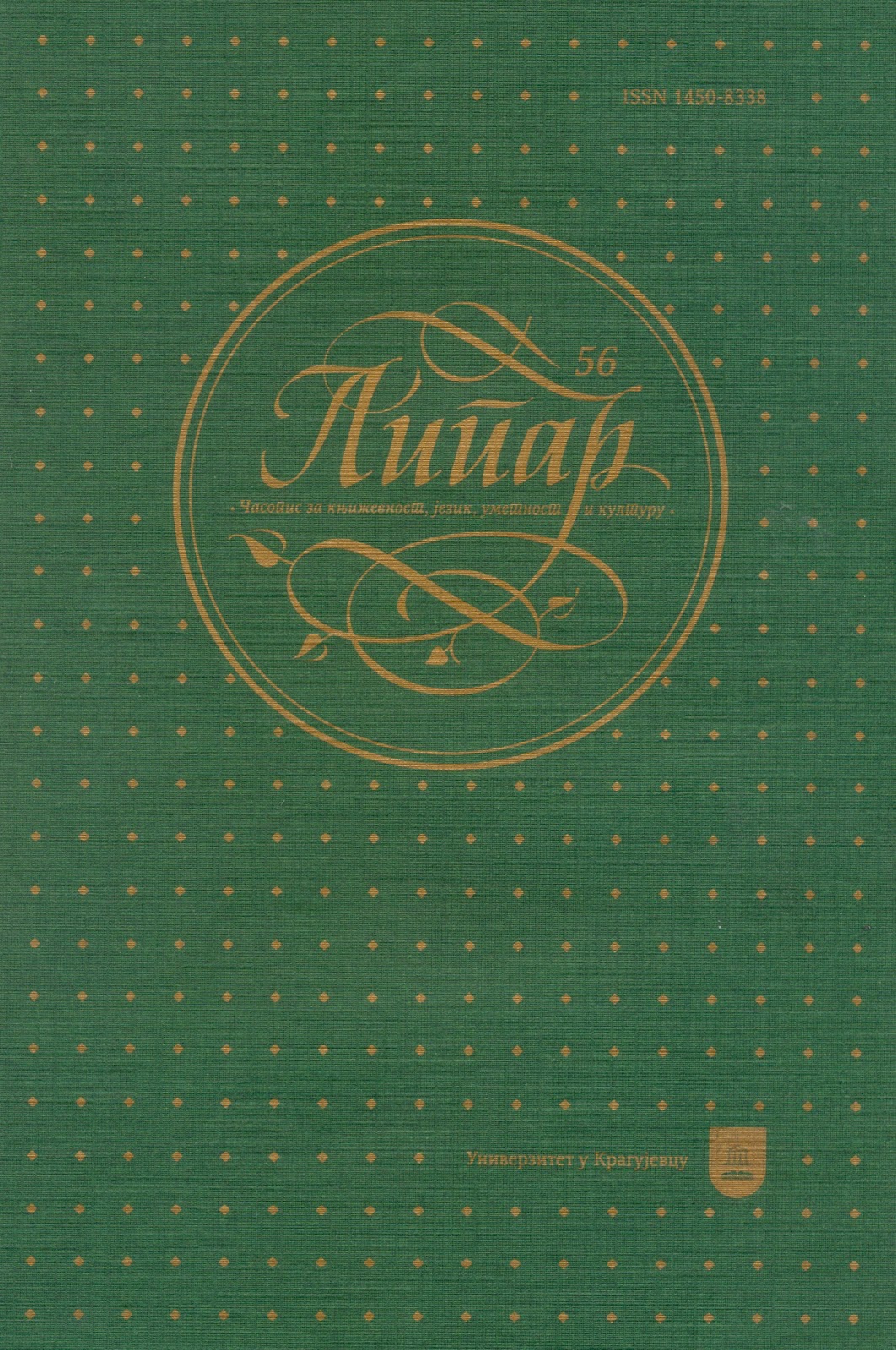ОДИСЕЈ, БЛУМ И РЈЕПНИН
ODYSSEUS, BLOOM AND RJEPNIN
Author(s): Jelena V. AleksovSubject(s): Language and Literature Studies, Studies of Literature, Comparative Study of Literature, Serbian Literature, Other Language Literature, Philology
Published by: Универзитет у Крагујевцу
Keywords: the idea of the city; Odysseus; Bloom; Rjepnin; the motif of wandering;the identity of the city;the identity of man; Megalopolis
Summary/Abstract: This paper aims to bring closer the perception of the idea of the city described through the parallel of three different heroes, Odysseus, Bloom and Rjepnin, with the symbolic illumination of movement to different pathways of the world and the impact of the city on the completion of theirlife’s journeys. Rjepnin’s intertwined wanderings through the streets of London, as an ontological category, are becoming an integral part of the hero’s being, carrying on a parallel with a great antique hero but only at the level of storytelling, whose life was only in the hands of the gods, to the parallel with the meaningless life of Lepopold Blum, which is shown by his pacing down the streets of Dublin. Various metamorphoses reveal deeply imprinted marks of Megalopolis, which make Rjepnin and Blum heroes of the disturbed name and identity, misunderstood and rejected by the society to which they belong.In contrast, the metamorphoses reveal the charm of Odysseus’s stability, which is concealed in his heart, which, due to the terrible efforts, has learned to be patient. The parallels of the three heroes are transferred to the portraying of characters of their women, faithful Nadja Rjepnin, wise Penelope and lustful Molly Bloom, through whom the circle of the dark labyrinth of the city completes and closes, in which Rjepnin’s movement is opposite to Odysseus’s and synchronous to Lepold’s. As a result of all that, the unachievable Rjepnin’s desire to return to Russia is reflected, which is opposite to Odysseus’s wanderings which are completed by fulfilling of his wish and returning to his native Ithaca, his home. Modern Odysseus, Leopold Bloom, like Rjepnin feels that he does not belong to his countrymen, and that he will never fully belong. The search for identity in a maze of city streets will connect Blum and Rjepnin and stress the problem of alienation of the individual from the society in European metropolises even more, revealing the depth of the meaningless present and tragic future. In contrast to Odysseus, Bloom and Rjepnin become prisoners in the dark labyrinth of the city, forgotten and dehumanized.
Journal: Липар - часопис за књижевност, језик, уметност и културу
- Issue Year: XVI/2015
- Issue No: 56
- Page Range: 85-100
- Page Count: 16
- Language: Serbian

